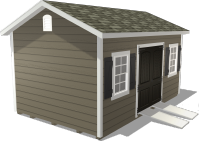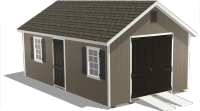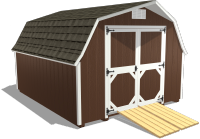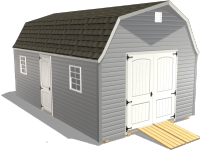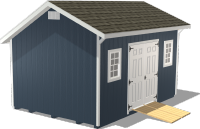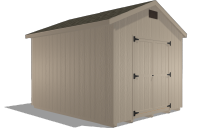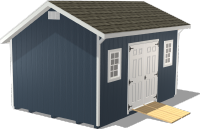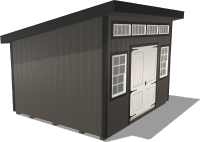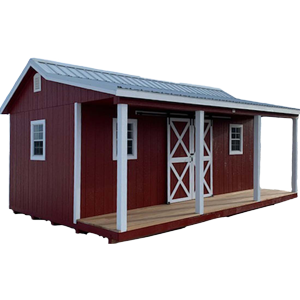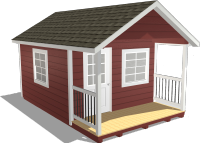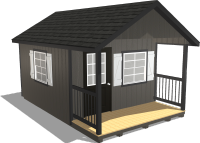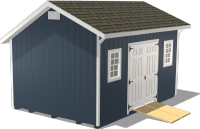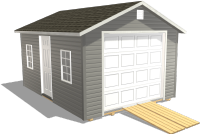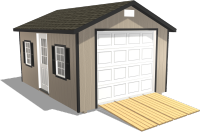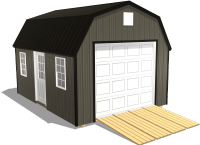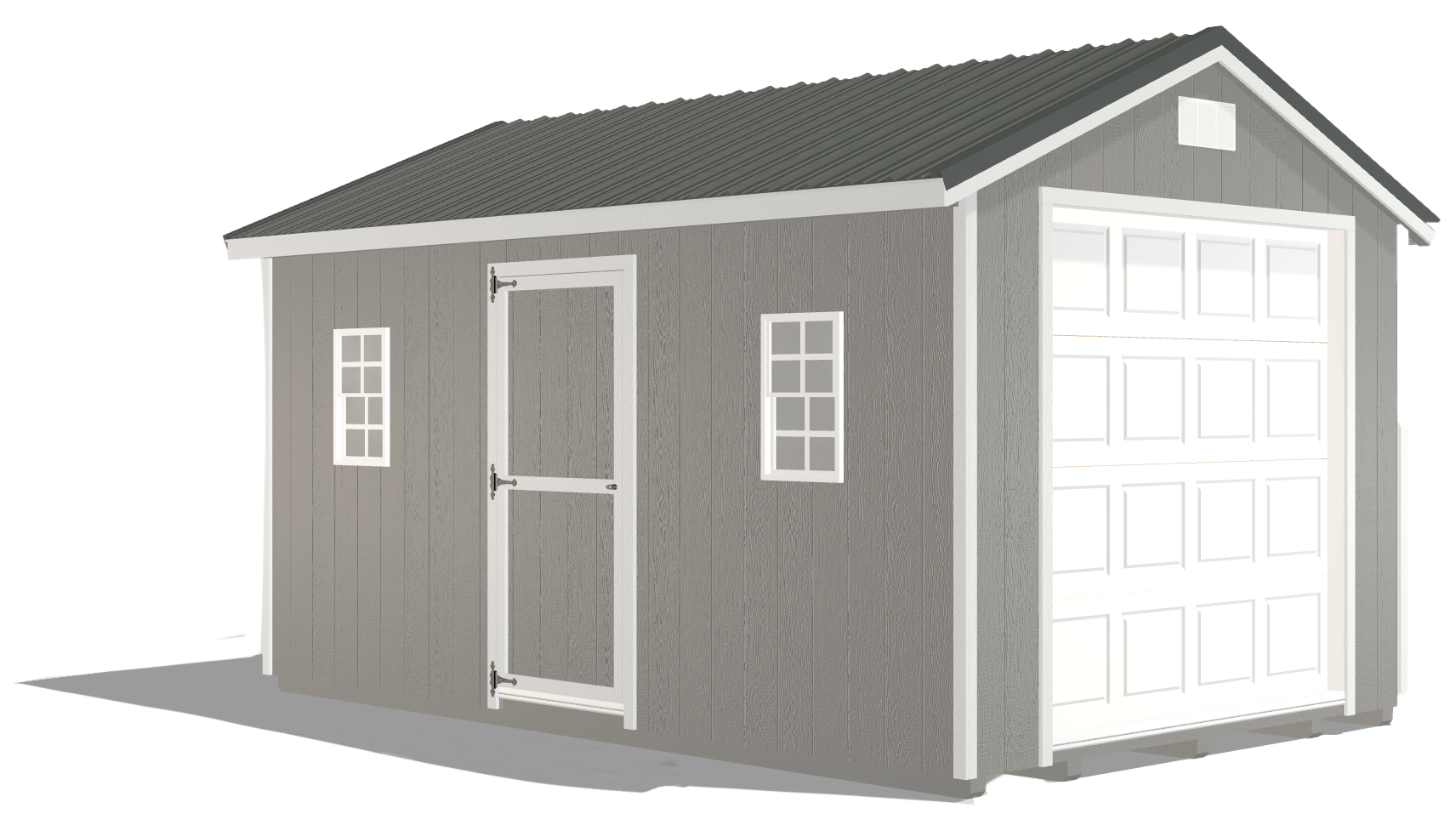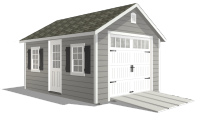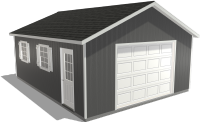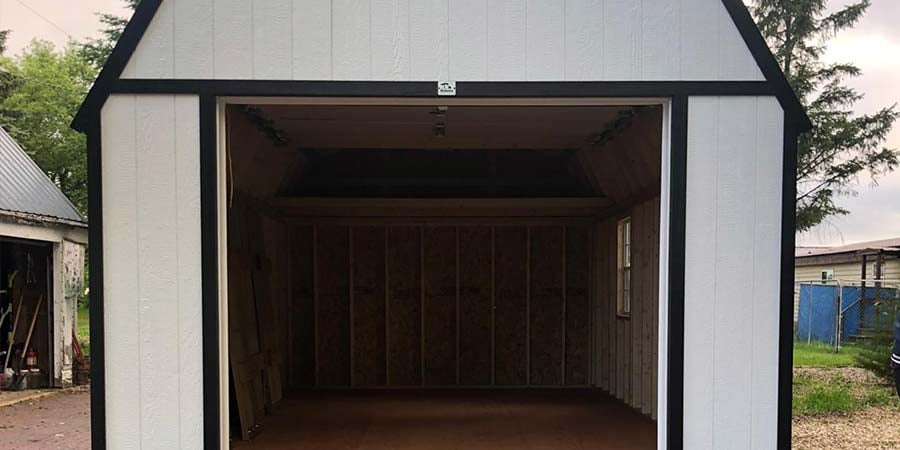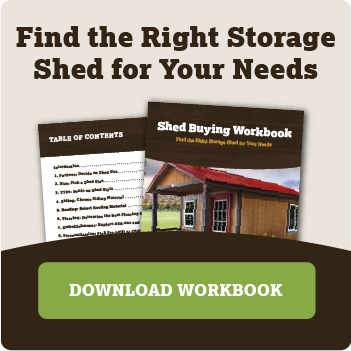Attached Vs. Detached Garage: Which is Right for You?
by Dakota Storage Buildings, on May 13, 2021
Which garage option is the best solution for your needs, space, and budget?
You’re already contemplating getting a garage to store your motorized vehicles, be it your everyday transportation, ATV, motorcycle, and/or riding mower. And it would also be nice to have extra space to store other non-motorized items like a deep freezer and workbench, right? Now the question is — should you invest in an attached or detached garage? For your storage needs and budget, which is the best solution?
To help you make your choice, let’s look at the pros, cons, and price ranges of each. Hopefully, that will help point you in the right direction.
No matter which option you choose, they will both sufficiently provide protection from the elements for vehicles and other recreational vehicles, and depending on the size you choose, offer extra space for additional storage.
Attached Garage: Pros, Cons, and Price Points
Attached garages are a relatively new development, as they didn't become popular until the 1950s. Now, a new construction standard, most attached garages open directly into a mudroom, entry hall, or kitchen and typically have enough space for either one or two cars with some extra storage around the perimeter.
Here are a few pros and cons to consider.
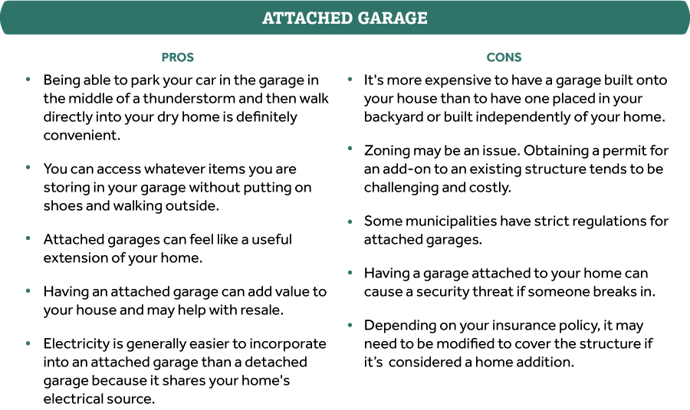
As far as cost goes, according to HomeAdvisor, the typical range for building a garage in 2020 was between $16,816 and $38,890. In general, you can expect to spend about $50 per square foot, which puts an average single-car unit between $10,500 and $27,000 and two-car options between $14,500 and $40,300. Click here to get a cost estimate range of an attached garage in your area. Remember, this is just a ballpark. It does not account for the cost of permits, labor, concrete foundation, add-ons, or upgrades.
An attached garage isn’t the right solution for everyone. You may not have enough room beside your house, or you may think the cons outweigh the pros. If that’s the case, consider the advantages of a detached garage.
Detached Garage: Pros, Cons, and Price Points
Being unattached self-contained units, detached garages are the most traditional option of the two. They were designed to take the place of carriage houses which were buildings separate from the home to store transportation (e.g., horse-drawn carriages) and related equipment.
Here are a few pros and cons to consider.
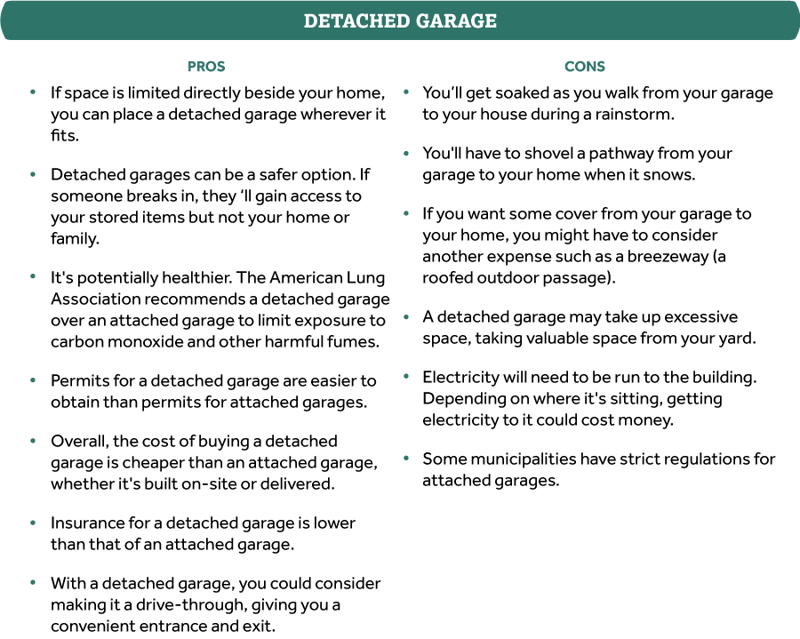
Generally, a detached garage can cost anywhere from $5,000 for a simple one-car garage up to $40,000+ for a customized multiple-car structure. Some garage manufacturers offer home garages that include durable flooring and other options that are built on a concrete foundation. In both cases, you still need to account for other additional costs like permits, labor, add-ons, and upgrades.
So, Which Garage Type is Right for You?
Although the above lists may seem skewed in favor of a detached garage, both garage types have similarities. For instance, they are both great storage solutions. What you store in one, you can certainly store in the other. And both garage options add value to your home. According to PocketSense, you could see up to an 81% return on your investment.
Also, size and dimensions matter for both. The absolute smallest size you should even consider for a one-car garage is 12'x16'. However, this accommodates only a small car and allows very little extra maneuverability. A 16'x28' garage provides much-needed space for opening doors and entering or exiting vehicles. The minimum size for a two-car garage is 20'x24'. However, a 24'x48' garage offers better flexibility, maneuverability, and additional storage space on the sides and back.
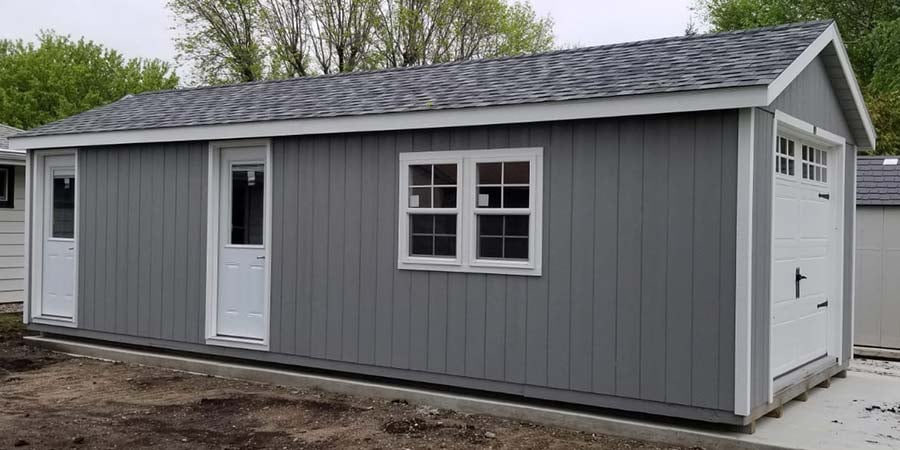
Another similarity is that they both employ an overhead garage door. The overhead door is a garage's largest moving part — and with an average of six up-and-downs a day, it's also one of the most used. So, whether you choose an attached or detached garage, garage door maintenance is important.
Having pros, cons, costs, and similarities laid bare, which garage type is the right one for you? The right answer for you comes down to these three things.
- Your budget. No matter how you intend to pay for your garage investment (loan, credit, cash), set a budget and work within it. Your budget should strongly inform your decision. For both attached and detached garages, putting some thought into what you want to be included will help you calculate more precisely what it will cost. Concrete foundation, add-ons, and upgrades can make any garage more expensive.
- Lot size. Do you have space beside your home for an attached garage? Are there any space or code restrictions? How large is your property? This consideration alone may be what dictates your garage option.
- Your preferences. Which looks better to you? Which offers you the most functionality and convenience? Which would look better on your property. This last influencer is entirely subjective and based purely on the preference of the buyer — you.
From space and size to versatility and convenience, there is plenty to consider. BUT, there's no right or wrong answer to the question of detached versus attached garages. So, it's up to you to decide what works best.
If you're leaning toward a detached garage, click the link below to discover even more helpful insights on the cost and process of buying a detached garage.
Final Thoughts
No matter which garage type you land on, here are a few additional aspects to consider.
- Insulation. Even if you aren't planning on using your garage as living space, it is much easier and cheaper to insulate while you build than it is to add it later. The least expensive insulation option may be better than none. And, yes, this is considered an add-on and will cost extra money.
- Extra storage space. If you want room for extra storage in your garage, be sure to factor that in when you're choosing a size. You can use cabinets, shelving, and pegboards, or you can choose to add on built-in loft storage or custom shelves. Of course, the latter option will come at a premium, but they look sharp and are built to last.
- Security. If your garage has a side entrance door, be sure to have a trusty lock on it. And depending on what you're storing inside of your garage or if it's attached to your home, you might want to consider installing a security system or motion detector flood lights to deter theft.
No matter what garage type you choose, think through how you plan to use it now and how you could potentially use it in the future. Processing these possibilities may help you decide if such things as insulation, extra storage space, and security are essential when purchasing or just ideas to file away for later.
Try our online drag and drop 3D garage configurator to create your custom detached garage. Choose the size, roofline style, siding, and all the add-ons you want.



